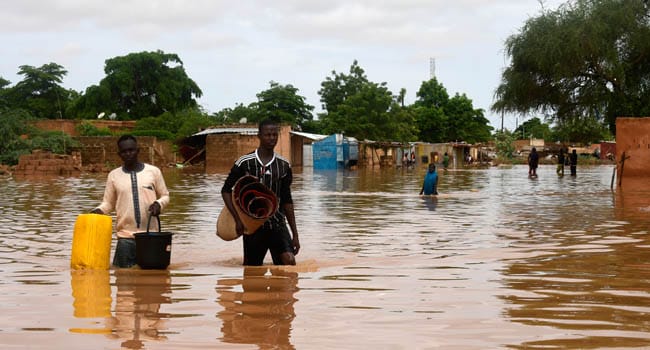The number of lives lost in last week’s catastrophic floods in Nigeria’s Niger State has risen to nearly 200, state authorities confirmed on Tuesday. The disaster, triggered by intense rainfall in the Mokwa area, has also left thousands displaced and scores of others missing.
According to a statement released by the state government, Deputy Governor Yakubu Garba provided the grim update while receiving mourners in his office on Monday. “The number of confirmed deaths is now close to 200,” he said. “We are also dealing with the displacement of over 3,000 people.”
Garba noted that roughly 1,000 individuals remain unaccounted for, as search and rescue efforts press on. The floods not only destroyed homes but also severely damaged critical infrastructure. Several roads were washed away, and multiple bridges collapsed, complicating both emergency response and recovery operations.
The flooding struck late Wednesday night, following hours of heavy rain that overwhelmed the area. Local authorities reported that numerous homes were submerged or carried away by the strong currents—many of them with residents still inside. Eyewitnesses described scenes of chaos, with families struggling to escape the rising waters.
Ibrahim Hussaini, spokesperson for the Niger State Emergency Management Agency, confirmed that more than 503 households have been directly affected by the disaster. “The search for bodies continues,” he said over the weekend. “Local divers and volunteers are playing a crucial role in reaching submerged areas and assisting in rescue efforts.”
Emergency services are now grappling with the scale of the crisis as shelters are overwhelmed and basic supplies are stretched thin. Authorities have called for increased support from humanitarian agencies and urged residents in flood-prone areas to relocate where possible.
On a national level, the National Emergency Management Agency (NEMA) issued a separate statement on Tuesday emphasizing the urgency of addressing Nigeria’s vulnerability to seasonal floods. The agency announced it had stepped up efforts to lessen the impact of such disasters across the country.
NEMA also called on all levels of government to take proactive steps, including the development of drainage systems, the construction of dams, and the implementation of long-term flood-resilient infrastructure in high-risk zones, particularly in riverine communities.
As rescue teams continue to search for survivors and recover the dead, the full extent of the devastation in Mokwa and surrounding areas is still unfolding. The tragedy underscores the growing threat of climate-related disasters and the urgent need for improved disaster preparedness and infrastructure planning across Nigeria.



